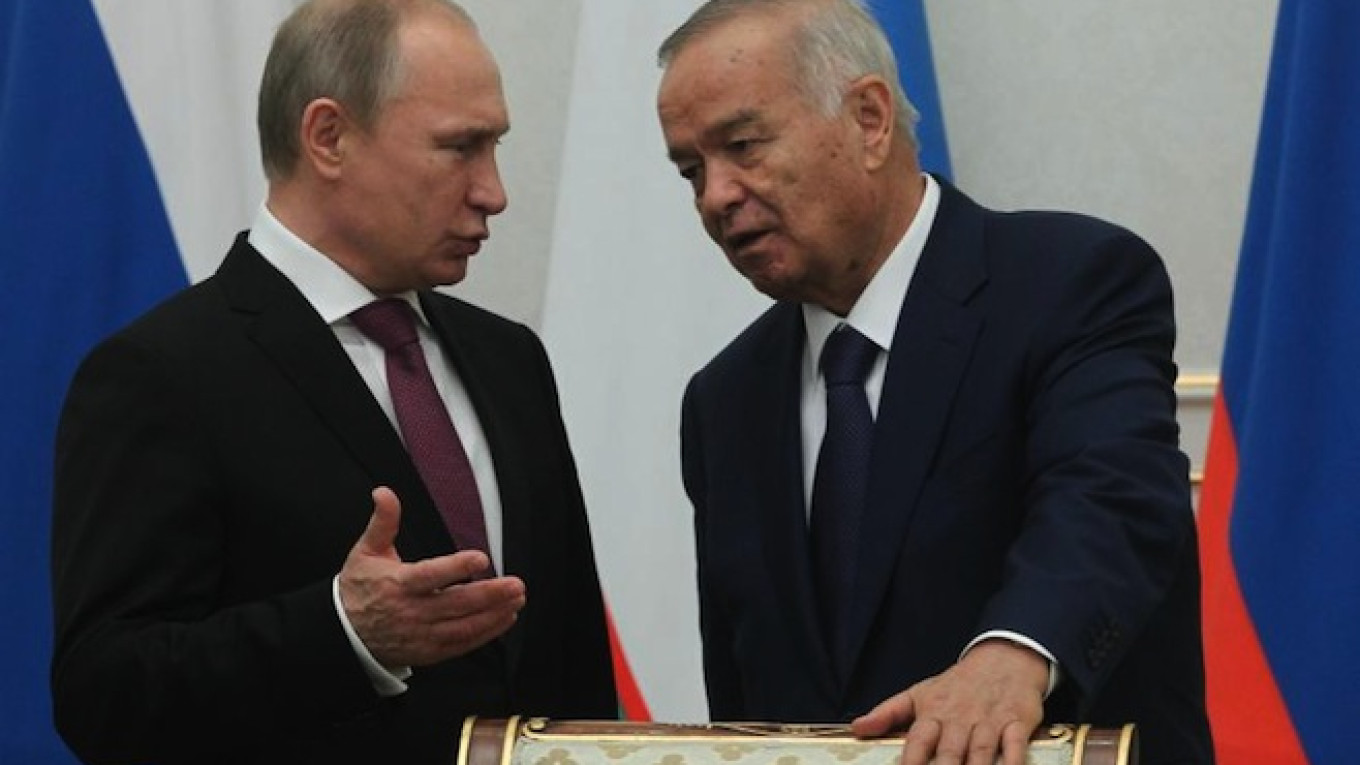Uzbekistan's authoritarian leader Islam Karimov is certain to extend his 26-year rule in a presidential election on Sunday, a result that is likely to prolong the problems facing the Central Asian country.
The 77-year-old ex-communist chief, who tolerates no dissent and has been criticized by Western human rights groups, used a legal loophole to seek five more years in power. His three rivals pose no real challenge.
But Karimov's health is uncertain and critics say the lack of a clear successor threatens a power vacuum when his rule eventually ends in the impoverished state, where former master Russia, the West and China all have strong interests.
"There is no anointed successor or at least a hint of such," said Central Asia expert Daniil Kislov, who owns the Moscow-based independent Fergana.Ru news agency.
"We can only guess how much longer he will last. But any power transfer is most likely only if he dies, and it may take various unexpected forms."
Karimov took the helm of the country of 30 million people as the head of the Communist Party in 1989, when Uzbekistan was still part of the Soviet Union.
In answer to his critics, he says Uzbekistan needs a firm hand to prevent the rise of radical Islam in the mainly Muslim nation, which borders Afghanistan. Critics say repression and well as poverty breed discontent in the reclusive country.
Uzbekistan's economy depends heavily on exports of gold, cotton, natural gas and copper. GDP growth was strong at about 8 per cent in 2014.
But inflation stands at about 11 per cent and growth is expected to decline slightly this year, reflecting the impact of Russia's economic downturn which has resulted in lower remittances from Uzbek workers in Moscow and hit trade, the European Bank for Reconstruction and Development said.
The election takes place two months before the 10th anniversary of what New York-based Human Rights Watch called "one of Eurasia's bloodiest massacres" — the killing of hundreds of protesters by government forces in the eastern city of Andizhan.
"The 10 years since have been marked by an extraordinary and continuing assault on human rights … which shows no signs of abating on the eve of Karimov's re-election," said Steve Swerdlow, Central Asia researcher at HRW.
No Successor
Uzbekistan has never held an election judged free and fair by the West. Independent candidates are barred by law from running.
The three other candidates represent parties largely loyal to Karimov. Those critical of his rule are either in jail or live in exile.
The constitution restricts the president's rule to two consecutive terms but it will be the fourth term in office for Karimov, who was first elected to the post in 1991.
After winning his current seven-year term in December 2007, he oversaw an amendment cutting future presidential terms to five years.
An observer mission of the Organization for Security and Cooperation in Europe (OSCE) said Uzbek officials sought to justify Karimov's decision to run again by saying terms of a different length could not be considered consecutive.
"The incumbent president is being portrayed by the other presidential hopefuls and party representatives as the best candidate," the OSCE said in an interim report, noting widespread self-censorship in local media.
Age may, however, be Karimov's main obstacle to holding on to power.
At times in the past two years he has disappeared from public view for weeks at a time and the lack of official comment has fed speculation about his health, including that he may have briefly lost consciousness in late January.
Uzbek media showed him dancing at a vernal equinox of Nowruz in the Uzbek capital Tashkent last weekend and he appears to have the support of the political elite.
But there has been widespread speculation of a rift with his eldest daughter, Gulnara Karimova. She has been charged with corruption and some reports have said she is under house arrest.
Tug-of-War
Russia won control of Central Asia in the 19th century "Great Game" with the British Empire. It is now vying with China and the West for clout in Uzbekistan.
Karimov has over the years maneuvered deftly between each external power, depending on which way the political wind is blowing.
He evicted a U.S. military airbase and banished Western media from the country, moving closer to Russia, after the United States and the European Union criticized him over the Andizhan massacre and imposed sanctions on Uzbekistan.
But the West later restored ties, seeing Uzbekistan as a strategic ally and a key supply route for a NATO-led contingent fighting in Afghanistan.
NATO based its Central Asian office in Tashkent in May last year and U.S. automaker General Motors Co has a plant in Uzbekistan, many of whose cars are produced to sell in Russia.
"This political maneuvering will continue during Karimov's new term," said Kazakhstan-based Central Asia analyst Alexander Knyazev. "A bilateral format in foreign policy is an unquestionable priority for Karimov. And a choice of a new partner will always depend on changing political circumstances."
Saying that torture is rife in Uzbek jails and child labour is widespread in the cotton fields, Human Rights Watch has urged Western governments to reconsider their strategic ties with Uzbekistan. Its sources put the number of political prisoners in the country at between 10,000 and 12,000.


